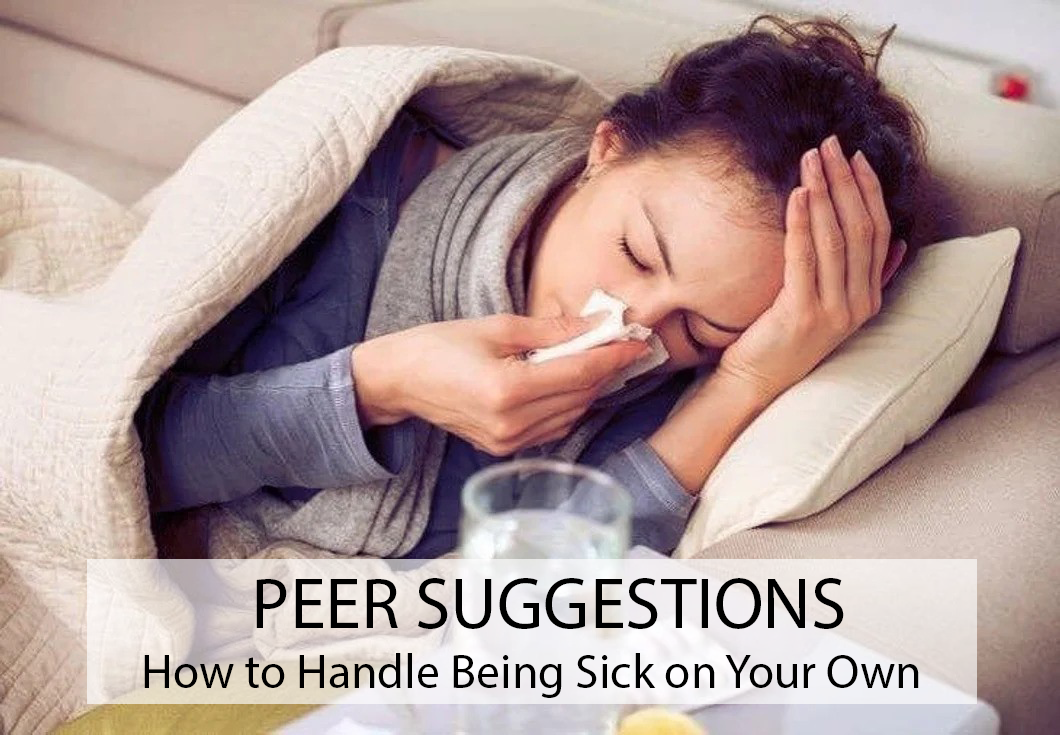At the start of a new semester, when the weather changes, if you go somewhere with plenty of different people – all of these are prime settings for falling ill. Getting sick happens all the time, and it is in your best interest as a college student with a strict time schedule to both manage your symptoms and prevent infecting those around you. Being on your own when you do not feel your best can be an uncomfortable experience, especially if you have always had help handling illnesses in the past. Here are five suggestions on how to survive being sick on your own so you can get back to your regularly scheduled life.
1. Know When to Get Help
It can be difficult to handle being sick on your own, especially in cases where you are delirious or otherwise mentally overloaded. Track your symptoms as they appear and continue to monitor yourself for any abrupt or worrying changes. Utilize trustworthy health resource sites such as the Center for Disease Control (CDC) to determine what type of illness you have if possible and follow the expert advice. If you need to miss class, make sure to contact your professors before class starts and let them know that you are not feeling well. Let a friend, family member, or someone you trust know that you are sick so they can check on you and ensure that you are recovering properly. Most illnesses you will contract in college do not require professional help, such as a cold or the flu, and can be managed by yourself with over-the-counter medication, heat/cold packs, and sleep. If you have suspicion that you have something more serious, try visiting student health. Student Health is located on the 3rd floor of the Falcon Center, you can visit anytime between 8am-4pm Monday-Friday. At home COVID-19 tests are available in stores with a pharmacy section. Remember, you know your own body best – If you feel that something is really wrong, call 911 or seek medical assistance.
2. Keep a Clean Environment
Most illnesses are spread through germs and bacteria, so making sure that your surroundings are clean will help reduce the chances of you getting sick in the first place or spreading your sickness to others. Wipe down door handles, grab bars, sink handles, and anything else you touch often with dirty hands or that multiple people use regularly. If you have your own bathroom, clean the toilets and showers to avoid anything festering. Wash your hands before eating or touching your face, and after you touch public railings, light switches, and tools. Wipe down your electronics regularly, take out your trash, and clean out your fridge to ensure there is no build-up of anything undesirable. If you are actively sick, try to avoid touching items in shared spaces and make sure to clean up after yourself as soon as possible.
3. Be Prepared
Being prepared for sudden illness will make a world of difference if and when you wake up feeling awful. Make sure you have a reasonable collection of over-the-counter medication like Ibuprofen, Advil, Acetaminophen/Tylenol, and Pseudoephedrine/Sudafed, as well as other necessities like a thermometer, heating pads, cold packs, and cough drops. Keep a bottle of water in your room to stay hydrated as well as a collection of snacks, as it may be difficult to eat full meals or leave your room to get anything else. If you need to go outside and interact with other people, wear a mask, and/or maintain 6 feet of space between yourself and others to avoid spreading your infectious germs.
4. Sleep it Off
For the majority of the illnesses you can contract at college, the best way to heal and recover quickly is lots of rest. For colds, flu, upset stomach, and anything that causes fatigue, take a relevant pill to address the symptoms then lay down. Sleeping or simply resting will allow your body to focus on its recovery without becoming strained. If you do not allow yourself to rest, your body will eventually force you to take a break so try to avoid reaching that point. Once you have addressed your symptoms the best you can and gotten some sleep, you will start feeling better rather quickly.
5. Make Your Time Productive
For longer illnesses or less serious sicknesses, there will be plenty of time where you will be awake but not functioning at 100%. You will not spend all your time in recovery asleep, which leaves you with an opportunity to catch up on schoolwork from the class time you missed. If you feel up to it, try to work on a few low-effort or simple assignments for your classes such as studying with flashcards, rereading your notes, or doing a Discussion Board. It is perfectly okay if you do not feel well enough to think clearly, focus instead on resting and recovering. Watch a movie or a show, read a book, or play some online games to help pass the time and give yourself a chance to take it easy.
Hopefully, these tips and recommendations make caring for yourself easier the next time you feel in less-than-optimal health. Do your best to keep yourself safe, but do not let the threat of illness stop you from enjoying yourself!










